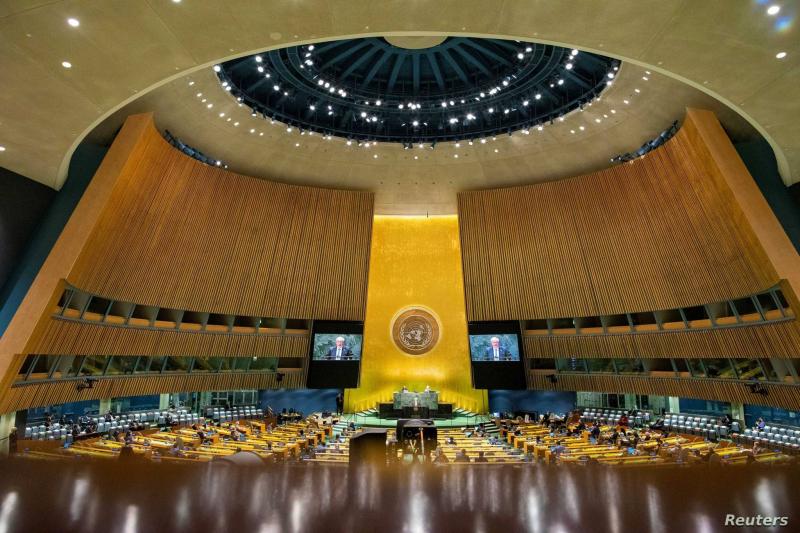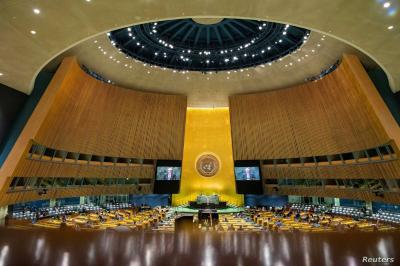It has not been long since revolutions and wars in the Middle East and North Africa topped the agenda of the United Nations General Assembly meetings in New York, before the world's focus shifted to more difficult challenges, such as the COVID-19 pandemic, climate change, as well as new crises in the besieged Tigray region of Ethiopia and the Taliban's takeover of Afghanistan. However, the situation in the Middle East has significantly deteriorated in several countries over the past two years, including Lebanon, Syria, Iraq, Libya, and Yemen, with rising poverty rates and an economic collapse threatening further crises, according to a report by the Associated Press.
Julian Barnes-Dacey, director of the Middle East and North Africa program at the European Council on Foreign Relations, said, "The region is crowded with other global crises, and there is also a sense of despair in the West after many years of crisis." After more than a decade of bloodshed and unrest, ignited by the so-called Arab Spring revolutions and attacks by ISIS, several Arab countries are in a "military deadlock or frozen conflict," accompanied by deteriorating economies, rising poverty rates, and repression.
In Yemen, the ongoing six-year war has led to the worst humanitarian crisis in the world, bringing the country to the brink of famine. The head of the UN Food and Agricultural Organization warned on Wednesday that 16 million people there are "moving towards famine." In Libya, which has been torn apart by rival militias backed by foreign governments for years, there is a struggle for unity. Its shores have become departure points for many desperate and hopeful individuals risking their lives while trying to cross the Mediterranean to Europe.
Iraq, Syria, and Lebanon, which were once cultural heartlands of the Middle East, are all witnessing economic collapses accompanied by rampant corruption, while political leaders focus on preserving their own interests instead of meeting the basic needs of their populations, according to the report. The most severe collapse is happening in Lebanon, which has been suffering from an unprecedented economic crisis since 2019, submerging about three-quarters of the population into poverty in recent months, and causing a brain drain. The collapse accelerated with the Beirut port explosion in August 2020, which killed more than 200 people and destroyed parts of the city.
In Iraq, where poverty, weak infrastructure, and an unresolved displacement issue exist, "despair" and frustration could lead to renewed violence. An 11-day war erupted in Gaza this summer between Israel and Hamas ruling the sector, destroying more than 4,000 homes or severely damaging them and killing 250 people, mostly civilians, while 13 were killed in Israel. The Jordanian King Abdullah II questioned in previously recorded remarks before the UN General Assembly, "How many homes will be destroyed? How many children will die before the world wakes up?"
While several UN General Assembly meetings in the past decade have been marked by some diplomatic activity aimed at finding a political solution to the crises in Middle Eastern countries, no solutions are expected to emerge from the current round. Dacey said, "Western players feel a loss of ideas or energy regarding putting the region on a better path, especially considering the wider global challenges." A combination of "war strains, donor fatigue, and a long list of other global problems" has pushed Syria, Yemen, and other Middle Eastern conflicts to the bottom of the world leaders' list of concerns and priorities, according to the report.
Analysts say neither Europe nor the West can ignore the economic collapse occurring in the Middle East. Heiko Wimmen, director of the Iraq, Syria, and Lebanon program at the International Crisis Group, stated: "Instability could manifest in Europe and the United States because despair is increasing migration," stressing that "you cannot be safe if your neighbor's house is on fire."




